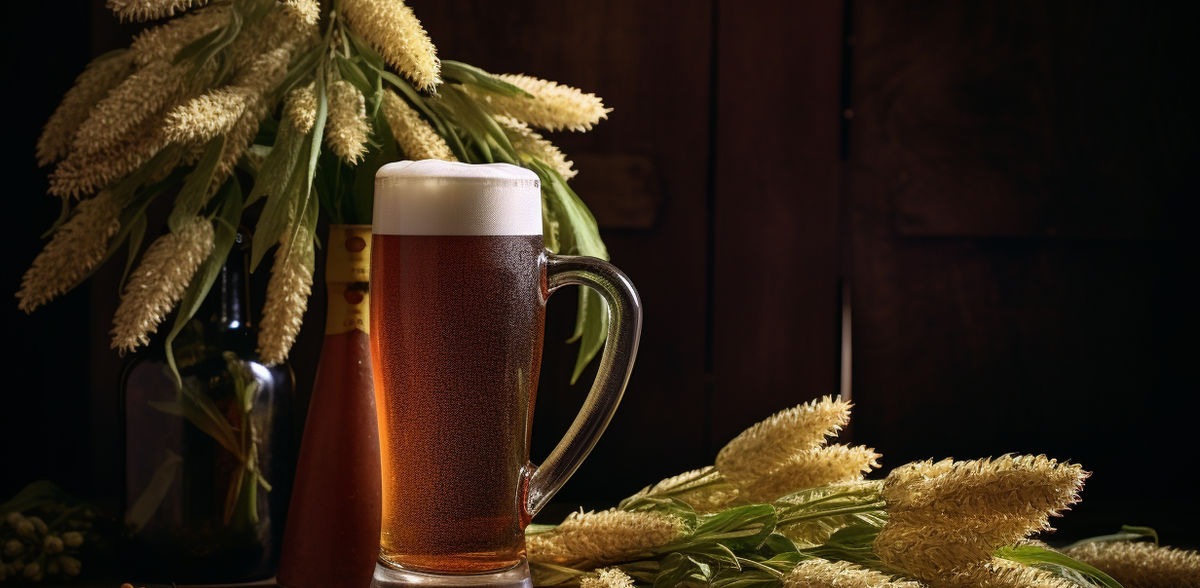Making gluten-free, sorghum-based beers easier to brew and enjoy
Advertisement
Though beer is a popular drink worldwide, it’s usually made from barley, which leaves those with a gluten allergy or intolerance unable to enjoy the frothy beverage. sorghum, a naturally gluten-free grain, could be an alternative, but complex preparation steps have hampered its widespread adoption by brewers. Now, researchers reporting the molecular basis behind sorghum brewing in ACS’ Journal of Proteome Research have uncovered an enzyme that could improve the future of sorghum-based beers.
Traditionally, beer brewers start with barley grains, which they malt, mash, boil and ferment to create the bubbly beverage. Barley contains gluten — a group of proteins found in several cereal grains. Sorghum, on the other hand, lacks these proteins and behaves differently than barley during brewing. For example, strong molecular bonds make it difficult to release starches from the grains during the mash stage. And fewer enzymes are present in sorghum wort — the liquid extracted from the mashing process — to transform the starches into simple sugars, such as glucose, which ferments into alcohol. Even when brewers adjust the reaction conditions during these steps, the resulting beverages are still less alcoholic than barley-based beers. To help bring the alcohol content up to expected standards, Edward Kerr, Glen Fox and Benjamin Schulz investigated the molecular processes that occur during sorghum brewing and found ways to improve the final product.
The team brewed both barley and sorghum beverages, taking them through malting, mashing and fermentation steps at varying temperatures and lengths of time. At the malting stage, the samples were analyzed via mass spectrometry proteomics, which revealed the presence of many of the same enzymes in barley malt and sorghum malt; those enzymes included amylases that break down starches into maltose. After the malts were steeped with water, the resulting sorghum wort contained less maltose than barley wort, but considerably more glucose. The team attributed these differences to the enzyme compositions: Sorghum wort contains fewer amylase enzymes than barley wort but more α‑glucosidase, an enzyme that breaks down starches into glucose instead. By optimizing brewing parameters to favor the activity of α‑glucosidase, the researchers say that brewers could create sorghum wort with higher concentrations of fermentable glucose, resulting in sorghum-based beers with higher alcohol content and better overall quality.



























































